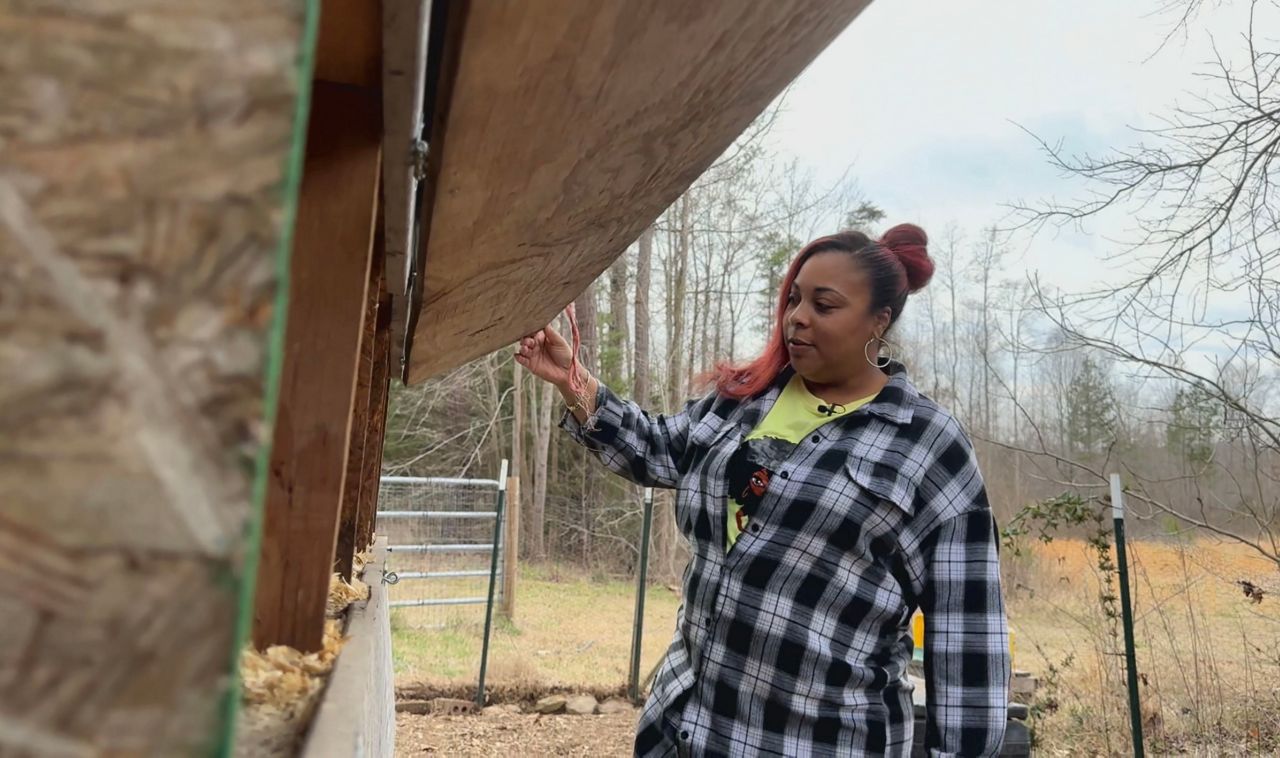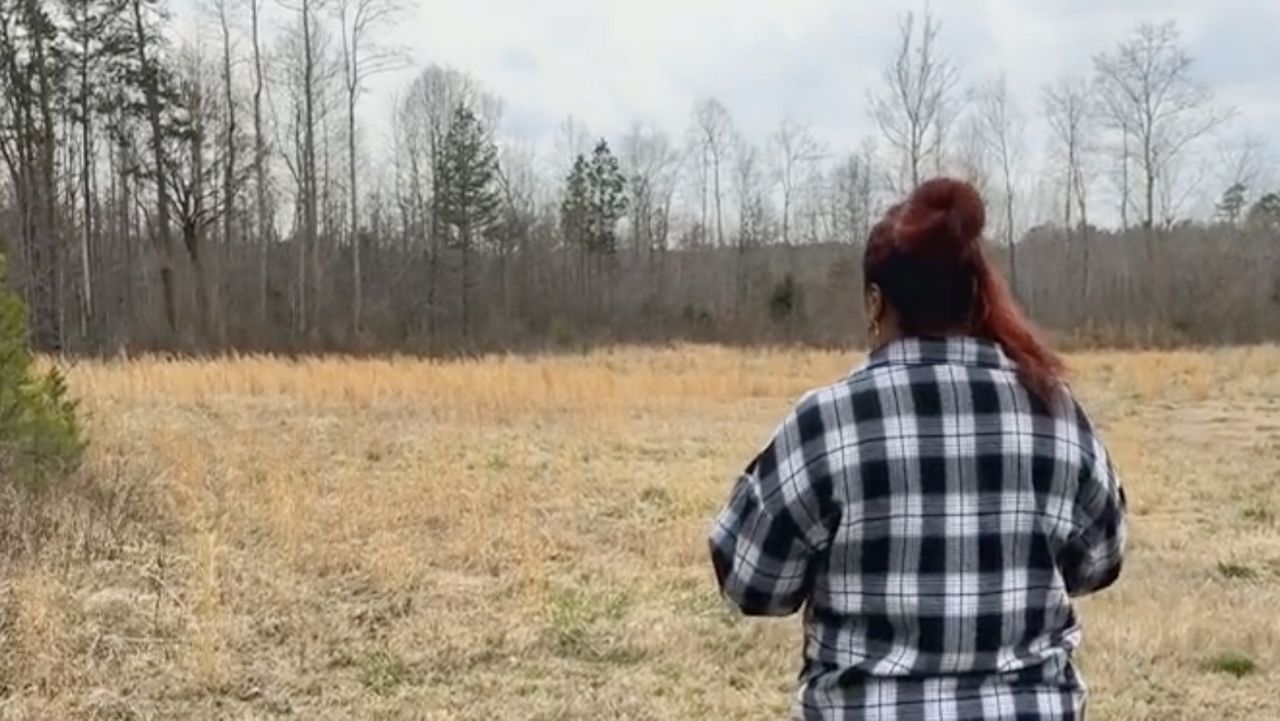GRAHAM, N.C. — A farm in Alamance County looks to help women who got out of prison get back on their feet and learn skills to rejoin society.
What You Need To Know
- Previously incarcerated people are 10 times more likely to be homeless than those who were not incarcerated
- Benevolence Farm helps women after they leave prison with housing, employement opportunites and more
- The farm in Alamance County is looking to add seven tiny homes to the property
- Women living on the farm have jobs there making body care products from items they grow
Mona Evans, the community advocacy director at Benevolence Farm enjoys making candles and body care products with residents of the transitional housing site.
“This is their employment here at the farm. They make the products and all the candles, the body care products,” Evans said.
The women use items they grow on the farm to infuse into their products, with the revenue going back into the housing program.
“We sell online, we ship nationwide. And then also we do a lot of markets. We have a few wholesale vendors that we're selling now, and they're mostly online markets and word of mouth,” Evans said.
Evans is now an employee of the nonprofit but was once a resident at the farm after being released after serving a 4 1/2-year sentence in a North Carolina prison.

“I didn't know that challenge I was going to face. I didn't really realize the challenges and barriers there were for incarcerated individuals … [when I] tried to like get my own housing is when I realized the real barriers there were. A lot of people with felonies are denied because of their records,” Evans said.
Benevolence Farm allows the women a place to live up to two years, work, learn business skills, along with societal norms and changes during their time in incarceration.
Evans said she is thankful for getting into the housing program, as not everyone has the luxury of finding somewhere to go after being released. Benevolence Farm Housing First Fund program helps women find housing by helping pay for the security deposit.
Prison Policy Initiative, a nonpartisan nonprofit, said that formerly incarcerated people are almost 10 times more likely to experience homelessness than those who haven’t been to prison.
“Property managers and rental companies are charging them double the security deposit for them to move in,” Evans said.
On the farm in Graham there are a handful of women who live and work on the property, with more housing in Burlington that allows for independent living and jobs outside of the farm. Although there are more women who need help.
Benevolence Farm is looking to add seven tiny homes to the property, to provide a space where residents can learn to live on their own, while having a community. Evans says the expansion is inspired by a former resident who was in prison for 27 years and didn’t know how to use the technology of today.
“She was very worried about like, hey, what if I can't figure out how to work my microwave, I'm a felon. I don't feel comfortable with just knocking on someone's door and asking them how to do this,” Evans said.
The homes would sit on the property in Graham and give the women a sense of independence having their own space, while allowing more women to join the program.
“You want your own space and then you want you want people around when you want control. So those tiny homes give individuals that autonomy to choose, you know, whether they want to do their own thing or they want their actual community support,” Evans said.

Evans said depending on the women’s convictions, some residents do not receive food stamps of SNAP benefits. The women are allowed to eat produce and eggs on the farm and some are given gift cards to grocery stores to pick their own food.
“That means a lot because we're dealing with formerly incarcerated individuals, they’re used to everything being scheduled out for them. They didn't have the autonomy when they were incarcerated,” Evans said.
Evans also started a support program called Bonding Families. Helping families reunify after prison and the emotional struggles of getting the family back together.
“They know you're the parent, but they're trying to build back their truths. And then also you're facing a lot of difficulties with establishing that trust back and trying to create that bond,” Evans said.



